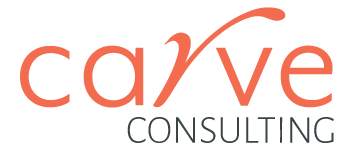In a world obsessed with talking about the latest tech innovations, it’s best to keep in mind that while tech will always evolve, fundamental skills remain the same.
Key takeaways
- It’s easy to become overwhelmed by tech innovations, but remember that fundamental skills do not date
- Being able to articulate how your knowledge and experience translates to the current market and brings value to an employer will help build your confidence.
- Once you’re confident in your core skills, try to reframe technology as a positive development opportunity
“This job looks interesting but they’ve asked for experience in all these systems,” a client said full of concern recently.
“Don’t let it overwhelm you. Remember that the job advertisement is also a wishlist” I replied. “Systems can be learnt and you have 30 years of experience – your fundamental skills are more valuable and took much longer to learn”.
This is one of many similar conversations, and the reasons why this topic always comes up are simple. If you go on LinkedIn or an online news site any day of the week, you’re bound to see articles about the next big piece of technology reportedly about to change our lives. Pick any selection of ads and you’ll probably see a whole bunch of complicated acronyms listed under position requirements.
In this tech-obsessed world, it’s easy to get caught up in all the talk and worry about how you’ll keep pace. Or worse still, opt out of considering roles because you think you don’t have the skills. Remember, it’s a well-known fact that both social media and advertising play on our instinct to compare ourselves to others in society, which can leave us feeling inadequate. So there’s a logical reason why scrolling through a newsfeed filled with the next big thing may be making you feel this way.
Concern about being behind the times can be heightened even further if you’ve been in your current role or organisation for an extended period, and your employer has not kept pace with technology.
Tech will continue to evolve. In fact, it’s estimated that technical skills become outdated every 2.5 years on average, meaning everyone is in the same boat. The good news for experienced professionals is the depth of fundamental skills that got them where they are today will always remain.
Defining timeless skills
One of the reasons people can let technological change paralyse them is an inability to articulate what they know into what appears to be a new world. This can go hand-in-hand with a tendency to wait for someone to notice how hard they work, rather than taking active steps to demonstrate their value.
If you’re looking for somewhere to start, consider the timeless skills and knowledge that makes someone in your career and industry successful. Despite the technological changes which have happened, it’s likely that your fundamental experience of how the industry operates is as in-touch as it has ever been.
There are many of these, but they include:
Do you have an ability to build trusted relationships?
Technology might change the mechanics of how we build relationships – CRM’s and meetings over Zoom for example – but the core expertise is exactly the same. As we know, the interpersonal skills and tenacity required to build relationships are extremely valuable and develop with experience. Think about the emotional intelligence required to connect, read situations, and the ability to actively listen to truly understand peoples needs.
Are you a good communicator; verbal, written or both?
While there’s a lot of talk about AI and its ability to write for us, there’s still intrinsic value in knowing how to communicate. Because while AI is a useful tool, for now it’s a tool which helps us communicate, not communicates for us.
What do you know about your customers’ behaviour, and has that changed on a fundamental level?
Again, while the platforms you use to reach customers might change, the fundamentals have not. Being able to understand what a customer needs and what drives behaviour in your market is learnt over time. Having the knowledge and experience to build trust with customers, and what can move them from a potential customer to a loyal brand advocate, delivers tangible value for an employer.
Do you know how to build a business, and has technology changed that at all?
The technology around building a business might have improved, but new systems are unlikely to have rendered your fundamental knowledge obsolete. The processes, competing priorities and decision curves for business development doesn’t change. In some ways, technology has actually tightened access to key decision makers, so in fact those core skills are every more important than ever. Think about your knowledge of areas like how to identify opportunities, how to address client concerns and objections and how to resolve issues.
What about your ability to get things done?
After many years of working in an environment or sector, we develop an innate sense of how to get things done, which is extremely valuable in any role. Think about all those unwritten rules and expected processes which you know so well, your ability to influence others in your company or industry, your knowledge of how to free up blockages, as well as your inherent sense of timing.
Fundamental skills have got you this far
These are all timeless skills and they’re what’s carried you through your career to date. If you’ve lost sight of this, try something as basic as sitting down to list fundamental skills that you have. Think back to all the strengths and achievements you’ve identified – through all those performance reviews and job interviews – and evaluate whether they’ve really become obsolete or not.
An exercise like this will help you avoid the mental ‘opt-out’ that comes from being overwhelmed by technological developments, and allow you to start moving forward.
Bridging the gap
Once you have established confidence in your fundamental skills, you’ll be in a strong position to reframe new technology as a development opportunity. You can make a rational assessment of what has changed and convert these gaps into an opportunity to keep learning. The chances are that while the fundamentals haven’t changed, some aspects have, such as the technology that has been overlaid onto systems, and a resulting change in working processes.
After establishing your wish list of what you can learn, then consider the how. That complicated-sounding acronym might be something you can learn in a one-day seminar or a self-paced course. You might be able to hire an expert to help you, or even just talk to more people in your industry to stay abreast of important developments.
There’s plenty of chatter out there and it’s tempting to scroll through your phone, feeling more and more hopeless. But there’s no reason it has to be that way. Recognising fundamental skills and embracing continuous development will ensure your career continues to evolve strongly for as long as you want it to.

